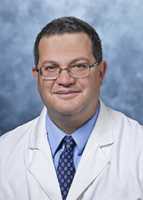
05 Nov New Biomarker Allows ‘Liquid Biopsy’ of Heart Muscle
MedicalResearch.com Interview with:

Dr. Shaw
Robin M. Shaw, MD, PhD
Wasserman Foundation Chair in Cardiology
in honor of S. Rexford Kennamer MD
Division of Cardiology, Smidt Heart Institute
Department of Medicine, Cedars-Sinai Medical Center,
Division of Cardiology, Department of Medicine
University of California,
Los Angeles, California
MedicalResearch.com: What is the background for this study? What are the main findings?
Response: At present, doctors do not have a clinical tool that assesses the biochemical health of heart muscle. Biomarkers are available that tests the amount of fluid in the heart, and whether a heart is overloaded (which can be resolved with diuretics). However, we don’t have biomarkers that assess the state of heart muscle itself. As a result, doctors can use biomarkers to determine whether, when a patient has trouble breathing, there is heart failure present.
However, biomarkers do not work when the patient does not have symptoms or when we already know the patient has heart failure and are trying to make clinical management decisions about the condition.
Current biomarkers also don’t work to assess the health of the heart before symptoms develop which is to detect cellular changes in muscle before overall heart function is impaired. The new biomarker, CS, address the above unmet needs. CS is based on cBIN1 which is a heart muscle protein that is essential for the heart to both contract and relax. cBIN1 decrease when hearts are stressed such as in heart failure. cBIN1 is also released into the blood stream, so it can be detected from a simple blood draw. CS is determined from the inverse of cBIN1, so low cBIN1 in blood will give a high CS signal. A low cBIN1, or a high CS, indicates failing heart muscle, and an increased likelihood for being admitted to the hospital with acute heart failure within the next twelve months.
MedicalResearch.com: What should readers take away from your report?
Response: This test gives doctors the ability to do a “liquid biopsy” of heart muscle. As the heart remodels in response to the stress of heart failure, blood available CS increases. Tracking CS will allow early detection failing heart muscle in vulnerable patients. CS also provides doctors with an ability to detect early in the course of disease when muscle health is approaching a critical point of a more clinically unstable state, yet with enough time to still take corrective action.
MedicalResearch.com: What recommendations do you have for future research as a result of this work?
Response: Heart failure is considered a syndrome with emphasis on clinical symptoms over objective data measuring heart function. The reason for the emphasis on clinical assessment is that we physicians never had an index into the health of cardiac muscle. CS provides such as index. As a readily available quantitative measure of cellular cardiac muscle remodeling, CS provides actionable data on the heart before symptoms develop. Thus, with CS, we may be able to start considering heart failure as a disease that can be tracked rather than a syndrome that is more difficult to define.
MedicalResearch.com: Is there anything else you would like to add?
Response: The research was supported by grants from the National Heart, Lung, and Blood Institute, the Department of Defense, and the American Heart Association.
Citation:
[wysija_form id=”3″]
[last-modified]
The information on MedicalResearch.com is provided for educational purposes only, and is in no way intended to diagnose, cure, or treat any medical or other condition. Always seek the advice of your physician or other qualified health and ask your doctor any questions you may have regarding a medical condition. In addition to all other limitations and disclaimers in this agreement, service provider and its third party providers disclaim any liability or loss in connection with the content provided on this website.
Last Updated on November 5, 2018 by Marie Benz MD FAAD
